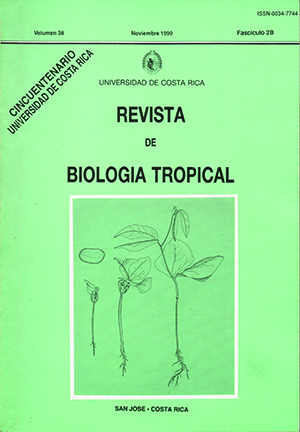Abstract
Between 1 968 and 1989, a total of 1 88 species of birds were recorded in an area of approximately 5 k:m2 in and around the campus of the Universidad de Costa Rica (UCR); of these, 58 species were permanent residents, 3 were breeding residents, 38 seasonal residents (mostly wintering migrants of North America), 50 passage migrants, and 39 were seasonal, occasional, or accidental visitors. The breeding avifauna of 61 species is comparable in size to that of other deforested areas in Costa Rica. During the study period, the UCR area changed from being dominated by traditional shaded coffee plantations, to one dominated by urban and suburban development. In Ihe process, the abundances of sorne 59 birds species, mostly residents, have changed markedly, with deelines far exceeding increases. Relatively few migrants and visitors changed in abundance, but the majority of both groups consisted of species recorded too infrequently for any marked trends to be detected. Over the 21 years, nearly all of Ihe species requiring shaded plantations, wooded areas, sstreams, or tall old second growth ha ve deelined;. species of pastures, low scrub, and other open areas mostly maintained fairly constant populations or deelined, but a few increased; most of those occupying a wide range of habitats held Iheir own; and small number of species attaining greatest densities in urbanized areas increased. Reasons for observéd declines varied: for many species, loss of particular resources associated with a given vegetation type seam implicated; for olhers, the general configuration of the vegetation most important. T hose species using widely##plugins.facebook.comentarios##

This work is licensed under a Creative Commons Attribution 4.0 International License.
Copyright (c) 1990 Revista de Biología Tropical
Downloads
Download data is not yet available.


